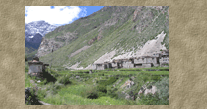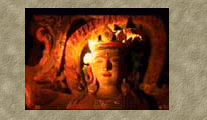|
||||||
 |
||||||
|
||||||||||||||||
|
|
||||||||||||||||
All contents of this website © 2010 Kailashzone Charitable Foundation |
||||||||||||||||
 |
Local Rules of Limi People
The three villages of Limi observe the dead laws of Tibet as their local rules. Since 1959, when the Tibetan Government lost its authority over the country, the new Communist Government of China has introduced new national Chinese laws. At the same time, in the early 1960s, Tibet's neighbors - Nepal and India - took the opportunity to draw the borders of Tibet with the new government of China and gained a certain amount of authority over hundreds of thousands of Tibetans, who are now known as Tibeto-Nepalese and Tibeto-Indians, under the laws and regulations of Nepal or India respectively. The people of Limi have kept Tibetan laws as their local rules in order to continue their Tibetan way of living and to preserve their religion, culture and traditions. Under the rules of the three villages of Limi, the 180 households are labeled according to three categorizations: Grong-Chen (big household), Grong-Chung (small household) and Mo-Hrang Ma (single woman household). The "big household" got the title from their great grand-parents, but no family knows exactly when they got the title and it is no longer given to any household. Commonly, most "big households" have greater status in wealth, property, domestic animals and land and most have between two and four generations sharing a kitchen and living together. The greatest number are "small households", which contain a male over the age of 18, except where there is a single man, which is not common. There are number of "single women households", which are some of the newest households and include a single woman and a mother and her daughter and son, who is under the age of eighteen. One reason fohaving "single woman households" is because people in Limi practice a particular Tibetan custom where several brothers marry one wife. Nowadays, this practice is only found in some remote corners of the country. The villagers of Limi follow the custom because it is necessary in order to be able to live in such a remote area. In order to earn a enough for household needs, they must have people to take care of their land and the domestic animals. In addition, since the income from this is poor, they need at least one person to engage in some small scale trading to earn enough to purchase the things they need. It is almost impossible for a married couple to make a living. For example, who will herd the animals? Who will work the farm? Who will do the housework? And who will travel for days selling their goods and buying what they need? Marrying all the brothers to one wife leaves the rest of the women unmarried and their children are known as "Nya-lu" (illegitimate children). It has become a tradition that those women leave their families and start new households with the help of their families and their children's fathers.
The three villages of Limi have a complete set of rules, which are kept both as written documents and oral statements, to be used any situation. For example: to protect the environment, the villagers are not allowed to kill wildlife or cut trees. The following is recited by the villagers: "Sheng Jechung Thag Par, Va Sersang Gang," which translates as: the penalty for cutting a tree which can hold one small bird is a Va Sersang of barley. "Va Sersang" is a local measurement, valued at 16 Nepalese rupees. Another rule states that when the wife in a big household gives birth to two sons, the younger son must be ordained as a monk; when the wife of a small household or a single woman household gives birth to three sons, the middle son must become a monk. There are therefore many households where there are more than two monks. In Limi, there are three monasteries - Tel Kunzom Dhongag Choeling, Weltse Rinchen Ling and Zang Phalgye Gye Ling. There are over ninety altogether. All the financial expenses of the monasteries are collected from the monks' households, with the exception of some single woman households where there is no son over the age of 18. The monasteries have some small-scale land which is rented to those families who wish to work it in exchange for payment to the monasteries.
|
| Sacred
sites at the Mount Kailash | Senge
Tenzin Rinpoche | Ngari:
western Tibet | Limi: northwestern Nepal | Dolpo: eastern Nepal |









 All
the social responsibilities of the villagers are divided according
to the status of the household: big households are counted as 100%,
small households as 50% and single women households as 25%. In general,
this rule covers every aspect of the villagers' lives. When an important
visitor, such as a religious teacher (lama) or a government representative,
comes to Limi, the big households are obliged to send as many horses
as necessary, the people of the small households have to go with
horses, while single woman households are given some smaller task
to do.
All
the social responsibilities of the villagers are divided according
to the status of the household: big households are counted as 100%,
small households as 50% and single women households as 25%. In general,
this rule covers every aspect of the villagers' lives. When an important
visitor, such as a religious teacher (lama) or a government representative,
comes to Limi, the big households are obliged to send as many horses
as necessary, the people of the small households have to go with
horses, while single woman households are given some smaller task
to do. 